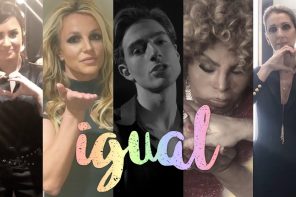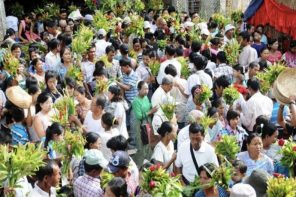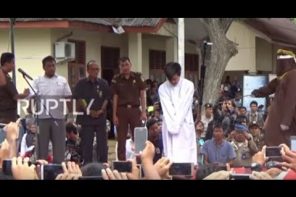On June 8, 1989, four days after the crackdown at Tiananmen Square, I attended the Commencement at Harvard to receive my doctoral degree. Clad in my crimson academic gown, I walked pass the Graduate School of Education on my way to Harvard Yard. Outside the school, many graduates had gathered, getting reading to process toward the Yard. A few graduates handed out strips of white cloth, and asked other graduates to tie them around their arms to remember those Chinese students who died on June 4.
A number of students wore armbands with the Chinese characters minzhu (democracy) on them. Some of them clearly did not understand Chinese, for the Chinese characters on their armbands were upside down. I was deeply moved by the gestures of these graduates, who might not have thought much about China or the Chinese students before these students stunned the world with their peaceful demonstration at the world’s largest public square.
As I entered the Yard, I saw a sea of white strips tied around the arms of graduates in their black or crimson academic gowns. Instead of jubilatory, the mood of the Commencement was subdued. My fellow Harvard graduates wanted to remember those Chinese students who would never graduate and make it to their commencement. Standing in solidarity with the Chinese students, these graduates bore witness to their aspiration for democracy and freedom.
On the twentieth anniversary of June 4, Tiananmen Square was relatively quiet and heavily guarded by the police. Hong Kong, as a Special Administrative Region, was the only place in China where a public candlelight vigil could be held. Several Christian groups in Hong Kong have helped organizing these annual vigils and pushed for the vindication of the June 4 demonstrators. The Hong Kong Christian Patriotic Democratic Movement issued a twentieth anniversary prayer, which says:
Righteous and peaceful God,
We pray to you.
The tears of Tiananmen mothers have not dried.
The curse of the wrongful deaths has not been lifted.
We pray that we will have a gentle and humble heart
To hold steadfast to our belief
And not allow distorted history have the last word . . .
Even though the dark night may be long
The light of our hope will be as long. . .
Last week as the world watched the demonstration of the Iranian people, images of the Tiananmen crackdown flashed back on many people’s minds. President Barack Obama invoked the words of Dr. Martin Luther King, Jr., “the arc of the moral universe is long, but it bends toward justice.” He continued, “We are bearing witness to the Iranian peoples’ belief in that truth, and we will continue to bear witness.”
It is fitting to recall Dr. King’s words at a time like this. Dr. King delivered his famous “How Long? Not Long” speech at the end of the march from Selma to Montgomery in Alabama on March 25, 1965. During the earlier marches that month, the peaceful demonstrators were attached by state and local police with billy clubs, tear gas, and bull whips. Toward the end of his speech, Dr. King said:
I come to say to you this afternoon, however difficult the moment, however frustrating the hour, it will not be long, because “truth crushed to earth will rise again.”
How long? Not long, because “no lie can live forever.”. . .
How long? Not long, because the arc of the moral universe is long, but it bends toward justice.
As the President pondered the words of Dr. King, the U.S. Senate passed the resolution to apologize for slavery and segregationist Jim Crow laws during the same week. The Senate joined the House, which passed a similar resolution last year, which marked the 40th anniversary of the assassination of Dr. King. Although the resolution did not include reparation for African Americans, the apology was a public act of recognition and bearing witness to centuries of brutality, humiliation, and indignity suffered by millions of African Americans. Iowa senator Tom Harkin said: “A national apology by the representative body of the people is a necessary collective response to a past collective injustice.”
Remembering and bearing witness are important practices in many faith traditions. Theologian Johann Baptist Metz said, “Every rebellion against suffering is fed by the subversive power of remembered suffering.” We bear witness because we share the burden of our common humanity.




